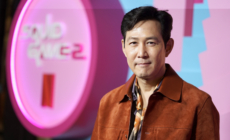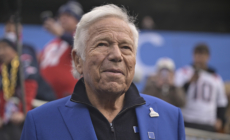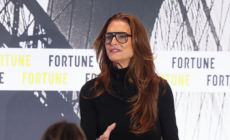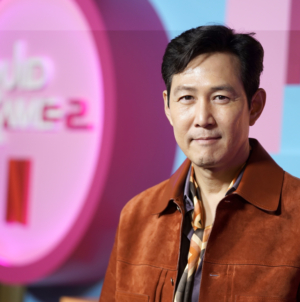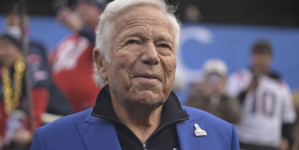-
How To Watch ‘Squid Game’ Before The New Season Premieres - 12 mins ago
-
How a Duct-Taped Banana Sold for $6.2 Million - 39 mins ago
-
Map Shows US States With Highest Levels Of Long COVID - 47 mins ago
-
Patriots Owner Robert Kraft Once Again Denied Induction into Hall of Fame - about 1 hour ago
-
The Alluring Dream That Black America Needs to Wake Up From - about 1 hour ago
-
Brooke Shields’ 2-Word Nickname for George H. W. Bush - 2 hours ago
-
The Secret Behind America’s Moral Panic - 2 hours ago
-
Ex-Congressman on Bondi Pick: Bag of Peanut Butter Is ‘Better Than Gaetz’ - 3 hours ago
-
Chuck Scarborough to Step Down as WNBC News Anchor After 50-Year Career - 3 hours ago
-
‘Wordle’ Today #1,252 Answer, Hints and Clues for Friday, November 22 - 3 hours ago
China Teases 2035 ‘Powerhouse’ Plan
Chinese President Xi Jinping has called on the country to become a cultural superpower by 2035, although one exiled political cartoonist said its view of arts and culture are that they are merely “tools for propaganda.”
That year was previously set by Xi as the point China should have achieved high levels of economic, technological, and military modernization. It’s a milestone for the Chinese Communist Party (CCP), midway between the 100th anniversary of its founding (2021) and the country’s centennial (2049), when Xi expects China to complete its “national rejuvenation” and be a fully realized global superpower.
During a Monday meeting with the Politburo, the CCP’s leading decision-making body, Xi laid out his vision for turning the country into a “powerhouse in culture,” with Marxism as a core guiding principle, state media outlet Xinhua wrote.
“We have placed cultural advancement at a prominent position in governing the country since the 18th CPC [CCP] National Congress,” the 71-year-old leader said, referring to the annual session in November 2012 when he was chosen to lead the party.

Keith Tsuji/Getty Images
Xi stressed the importance of party leadership and socialist values and called for a more prominent government role in cultural spaces using information technology democratization in the arts and academia.
Acknowledging a need to expand the country’s cultural footprint and international appeal, he also promised more people-to-people exchanges with other countries and understanding of other cultures.
While Xi appeared to advocate more freedom and openness in creative industries, the Chinese government strictly controls forms of expression on any politically sensitive topics or anything deemed to be disparaging of the CCP. These restrictions are said to have increased since Xi took power.
Newsweek has reached out to the Chinese Foreign Ministry with a written request for comment.
China’s nascent stand-up comedy has been no exception. Last year, comedian Li Haoshi landed in hot water after making a People’s Liberation Army slogan about his dogs chasing a squirrel.
Netizens on China’s X-like social media platform Weibo accused him of disrespecting the armed forces. The comic’s company terminated its contract with him after being heavily fined by Beijing’s municipal Bureau of Culture and Tourism, and Li was arrested.
The threat of persecution has forced some to make a new life abroad. Among these is an Australia-based Chinese political cartoonist and dissident who goes by the pen name Badiucao.
Badiucao said the evolution of the arts in China since Xi took power can be summarized in two words: “propaganda and censorship.”
“Under Xi Jinping, art is never seen as an expression of free thought. The CCP approaches art and culture as tools for propaganda, using them to assert control and manipulate public perception,” he told Newsweek.
He cited the imprisonment of Nobel Prize laureate Liu Xiaobo and the ban on the works of writer-in-exile Murong Xuecun as examples of how the CCP treats those who cross it.
Beijing uses other means to extend its censorship to other countries.
Badiucai said certain Australian art institutions had declined to exhibit his work over fear of China’s political reprisals or loss of access to the country’s massive market.
“In Europe, the Chinese government has tried to shut down exhibitions by pressuring venues, calling, emailing, or even appearing in person to demand the cancellation of shows,” he added.
Source link


